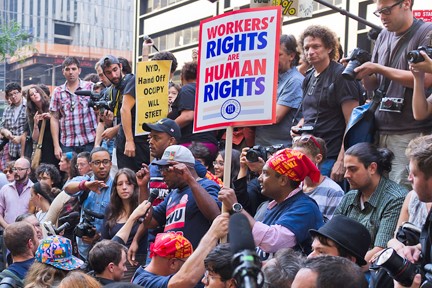Amazon is in yet another prominent ethical situation, being criticized for how it treats its employees. There are claims of poor working conditions, low pay, and excessive employee monitoring. Employees have complained about long hours, short breaks, unpredictable production goals, and demanding work environments. Concerns have also been raised about the company's use of surveillance cameras, GPS tracking, productivity tracking algorithms, and other technologies to monitor employees.

The ethical dilemma here is balancing the business's needs for efficient operations and its responsibility to guarantee its employees are treated fairly. Amazon argues, on the one hand, that it offers attractive pay and benefits and makes investments in the health and safety of its workers, while critics counter that the firm puts workers' rights and well-being last and puts productivity and profitability first. There are also wider societal consequences, such as how they will affect labor rights and worker health safety. Whether Amazon's commercial activities adhere to moral principles of justice, respect for human dignity, and social responsibility is the ethical question.
Ultimately, Amazon's dilemma highlights the complex relationship between worker rights, corporate objectives, and societal expectations. This raises significant concerns regarding corporate accountability and how people are treated in today's workplace.
Sources:
Ashworth, B. (2022, June 4). Amazon Watches Its Workers and Waits for Them to Fail. Wired. https://www.wired.com/story/amazon-worker-tracking-details-revealed/
Palmer, A. (2023, January 18). Amazon cited by Labor Department for exposing warehouse workers to safety hazards. CNBC. https://www.cnbc.com/2023/01/18/amazon-cited-by-osha-for-exposing-warehouse-workers-to-safety-hazards.html

It's disheartening to continually hear about the ethical concerns surrounding Amazon's treatment of its employees. While the company may argue that it offers competitive pay and benefits, it's crucial to recognize that fair treatment extends beyond just compensation. The issues raised regarding working conditions, surveillance, and productivity expectations highlight a deeper problem within the corporate culture. As consumers, we have a responsibility to demand better from companies like Amazon and hold them accountable for their treatment of workers. What steps do you think Amazon should take to address these concerns and ensure the well-being and rights of their employees are truly prioritized?
ReplyDeleteAmazon should take proactive actions to address employee complaints, such as improving working conditions, ensuring fair labor practices, and prioritizing employee well-being. This could involve cultivating a culture of respect and empowerment, ensuring enough breaks and rest periods, creating open performance criteria, and empowering employees to organize and speak for their rights. Furthermore, Amazon should engage in meaningful communication with employees and labor representatives to address grievances and collaborate on solutions that prioritize the well-being and rights of their workers.
DeleteYour blog post raises important ethical concerns surrounding Amazon's treatment of its employees, shedding light on the challenging balance between business efficiency and ensuring fair treatment of workers. The claims of poor working conditions, low pay, and excessive monitoring indeed underscore the need for closer examination of Amazon's practices in light of ethical principles such as justice, respect for human dignity, and social responsibility.
ReplyDeleteOne question that arises from this discussion is how Amazon can better align its business objectives with the well-being of its employees while still maintaining productivity and profitability. Additionally, what steps can be taken to address the wider societal consequences of Amazon's practices on labor rights and worker health safety? Engaging in dialogue with stakeholders, including employees, labor rights advocates, and regulatory authorities, could be a crucial step in addressing these ethical concerns and promoting a workplace environment that upholds both business success and employee welfare.
Engaging in dialogue with stakeholders and implementing transparent policies could definitely be essential steps for Amazon to ensure the well-being of its employees while maintaining business efficiency.
Delete